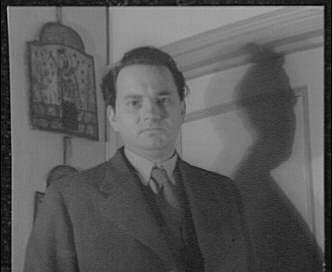Dear Friends,
Thomas Wolfe writes of the “mouths of earth” which open to feed upon the beautiful. When we first encounter these mouths — when a loved one is threatened, or a bright idea killed in committee — we tend to flee to the clouds.
The clouds are not the true heaven, the sky of blue through which they wander, but an ersatz. They cushion us against our shock, but we should not stay too long among them. From the clouds, we can see the old Rome devoured by barbarians, but cannot take part in the birth of the new — for the clouds are made of thoughts and opinions, but the new Rome is not: it is born of faith and love.
The clouds are not the sky. We have all seen this sky, if only for a moment. It is this glimpse of blue which makes it possible to return to earth: we know earth is not all. That which suffers and enjoys is nestled in the bosom of that which is.
Thank you so much.
With every good wish for the New Year,
Ishmael
T. S. Eliot describes the blue sky this way (in The Dry Salvages, third of his Four Quartets):
For most of us, there is only the unattended
Moment, the moment in and out of time,
The distraction fit, lost in a shaft of sunlight,
The wild thyme unseen, or the winter lightning
Or the waterfall, or music heard so deeply
That it is not heard at all, but you are the music
While the music lasts…
The full passage from Thomas Wolfe’s novel, “Look Homeward, Angel”:
Come up into the hills, O my young love. Return! O lost, and by the wind grieved, ghost, come back again, as first I knew you in the timeless valley, where we shall feel ourselves anew, bedded on magic in the month of June. There was a place where all the sun went glistening in your hair, and from the hill we could have put a finger on a star. Where is the day that melted into one rich noise? Where the music of your flesh, the rhyme of your teeth, the dainty languor of your legs, your small firm arms, your slender fingers, to be bitten like an apple, and the little cherry-teats of your white breasts? And where are all the tiny wires of finespun maidenhair? Quick are the mouths of earth, and quick the teeth that fed upon this loveliness. You who were made for music, will hear music no more: in your dark house the winds are silent. Ghost, ghost, come back from that marriage that we did not foresee, return not into life, but into magic, where we have never died, into the enchanted wood, where we still lie, strewn on the grass. Come up into the hills, O my young love: return. O lost, and by the wind grieved, ghost, come back again.
Thomas Clayton Wolfe (1900 — 1938)
Photograph from 1937 by Carl Van Vechten
In an artist’s life, that which is of flesh and blood is transmuted: it arises behind him, a second body, the master of the first…
I offer tutoring online in music theory — for a taste, please see my website:




